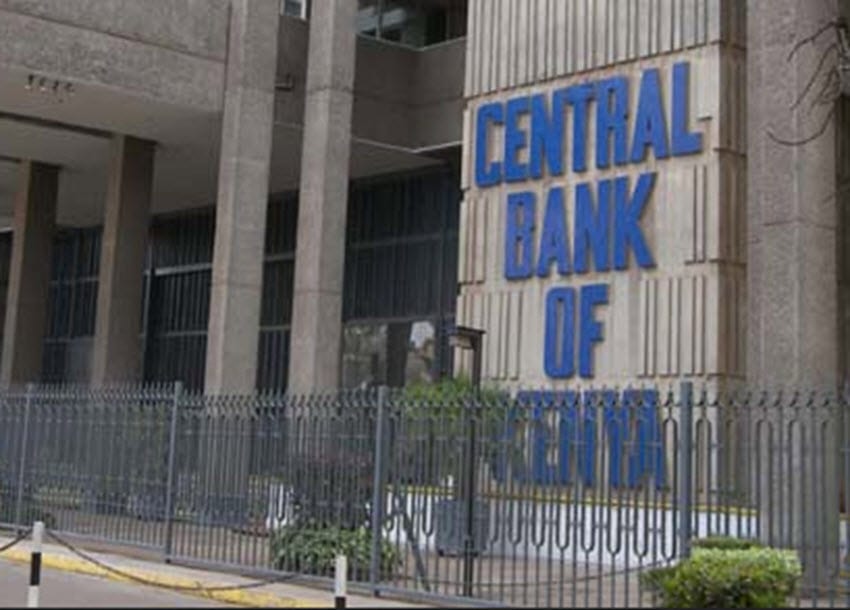Kenya’s banking sector plays a pivotal role in driving economic growth, offering a wide range of financial products to individuals, small businesses, and corporations. Among these, bank loans in Kenya remain a cornerstone for funding personal aspirations, business expansion, and emergency needs. With evolving monetary policies and a dynamic economic landscape, understanding Kenya bank loan interest rates, eligibility criteria, and the application process is more crucial than ever in 2025.
The Landscape of Bank Loans in Kenya in 2025
Kenya’s financial ecosystem, regulated by the Central Bank of Kenya (CBK), has seen significant shifts in recent years. The repeal of the interest rate cap in 2019 under Section 33B of the Banking Act ushered in risk-based pricing, allowing banks to tailor interest rates based on borrower profiles. As of April 2025, the CBK’s Central Bank Rate (CBR) stands at 11.25% (following progressive cuts from 12.75% in 2024), influencing lending rates across commercial banks.
The Kenya Bankers Association (KBA) reports that average lending rates have eased to 16.89% by late 2024, with projections for further reductions in 2025 as banks align with CBK’s monetary easing. This makes bank loans an increasingly attractive option for Kenyans seeking affordable credit.
Types of Bank Loans Available in Kenya
Kenya’s banks offer diverse loan products to cater to different needs. Here’s a breakdown of the most popular options:
1. Personal Loans
- Purpose: For personal expenses like education, medical bills, or home improvements.
- Types: Secured (e.g., against property) or unsecured (no collateral required).
- Key Players: NCBA Bank, Standard Chartered, Co-operative Bank.
2. Business Loans
- Purpose: Funding startups, working capital, or expansion.
- Types: Term loans, overdrafts, or asset financing.
- Key Players: Equity Bank, KCB Bank, Absa Bank.
3. Mortgage Loans
- Purpose: Home purchase or construction.
- Features: Long repayment terms (up to 20 years).
- Key Players: Housing Finance (HF Group), Stanbic Bank.
4. Auto Loans
- Purpose: Vehicle purchase.
- Features: Often tied to logbook security.
- Key Players: I&M Bank, DTB Bank.
5. Microfinance Loans
- Purpose: Small-scale entrepreneurs and underserved populations.
- Key Players: Not traditional banks, but some like Equity Bank offer similar products.
Each type comes with unique interest rates, eligibility requirements, and application processes, which we’ll explore in detail.
Kenya Bank Loan Interest Rates in 2025
Interest rates for bank loans in Kenya vary based on the CBR, loan type, and borrower risk profile. Here’s the latest snapshot for 2025:
Current Interest Rate Trends
- Average Lending Rate: 16.89% (December 2024, expected to drop to 15-16% by mid-2025).
- Personal Loans: 13-20% p.a., with unsecured loans on the higher end.
- Business Loans: 14-18% p.a., depending on collateral and credit history.
- Mortgage Loans: 8.5-14% p.a., with public sector banks like Union Bank offering rates as low as 8.1%.
Bank-Specific Rates (February 2025)
Based on data from Kenya Banking Insights and X posts:
- Co-operative Bank: Base rate reduced to 14.5% + 0-4% margin.
- KCB Bank: 14.6% base rate.
- Equity Bank: Equity Bank Reference Rate (EBRR) at 14.39%.
- NCBA Bank: 15.34%.
- Absa Bank: 13.5% base rate + 1% risk margin.
- Standard Chartered: 15.28% (among the lowest for listed banks).
- HF Group: 20.17% (highest among listed banks).
Factors Influencing Rates
- CBR Fluctuations: Lower CBR reduces borrowing costs.
- Credit Risk: Higher risk profiles (low credit score, no collateral) attract higher rates.
- Loan Tenure: Longer terms may increase total interest paid.
- Currency: Loans in USD/EUR/GBP (e.g., LIBOR + 6%) are costlier than KSH-denominated loans.
Eligibility Criteria for Bank Loans in Kenya
Securing a bank loan in Kenya requires meeting specific benchmarks. While criteria vary by bank and loan type, common requirements include:
General Eligibility
- Age: 18-60 years (some banks extend to 65 at loan maturity).
- Income: Stable income source (salaried, business, or self-employed).
- Credit Score: A CIBIL score of 700+ is ideal for lower rates.
- Residency: Kenyan citizens or residents with valid ID (National ID, passport).
Specific Requirements
- Personal Loans:
- Salary slips or bank statements (3-6 months).
- Employer check-off agreement (for salaried employees).
- No collateral for unsecured loans.
- Business Loans:
- Business registration/license.
- Financial statements (1-2 years).
- Collateral (e.g., property title) for secured loans.
- Mortgage Loans:
- Property valuation report.
- Proof of down payment (20-40% of property value).
- Stable income (40% net take-home pay after EMI).
- Auto Loans:
- Vehicle quotation from dealer.
- Logbook as security.
- Insurance cover.
Additional Considerations
- Debt Service Coverage Ratio (DSCR): Minimum 1.5 for businesses.
- Non-Performing Loan History: Banks check for defaults via Credit Reference Bureaus (CRB) like TransUnion.
How to Apply for a Bank Loan in Kenya
Applying for a bank loan in Kenya in 2025 is streamlined, with both online and in-branch options. Here’s a step-by-step guide:
Step 1: Assess Your Needs
- Determine loan purpose (e.g., personal, business).
- Calculate required amount and affordable EMI using online calculators (e.g., NCBA or Standard Chartered websites).
Step 2: Compare Lenders
- Research banks via KBA for rates and terms.
- Check for hidden fees (processing, insurance, legal costs).
Step 3: Gather Documents
- Personal Loans: ID, payslips, bank statements.
- Business Loans: Business plan, financials, collateral documents.
- Mortgage/Auto Loans: Property/vehicle papers, valuation reports.
Step 4: Submit Application
- Online: Via bank portals (e.g., Equity Bank, KCB apps) or SC Mobile App.
- In-Branch: Visit with documents; expect 3-5 day processing.
Step 5: Approval and Disbursement
- Banks assess creditworthiness (1-7 days).
- Funds disbursed to account or vendor (e.g., car dealer).
Tips for Success
- Clear CRB status before applying.
- Negotiate rates if you have a strong profile.
- Opt for check-off loans for lower rates.
Pros and Cons of Bank Loans in Kenya
Advantages
- Competitive Rates: Lower than digital lenders (e.g., 13% vs. 30%+).
- Flexible Terms: Up to 84 months for personal loans.
- Large Amounts: Mortgages up to Ksh 50 million+.
Disadvantages
- Strict Eligibility: High documentation burden.
- Processing Time: Slower than instant mobile loans.
- Collateral Risk: Defaulting risks asset loss.
Trends Shaping Bank Loans in Kenya in 2025
- Digital Transformation: Apps and USSD codes (e.g., *522# for Equity) simplify applications.
- Rate Reductions: CBK’s CBR cuts spur lower lending rates.
- Sustainability Focus: Banks like I&M offer green financing at concessional rates.
- MSME Support: KBA’s Ksh 150 billion annual pledge boosts small business loans.
Top Banks for Loans in Kenya
- Equity Bank: Known for business loans, EBRR at 14.39%.
- KCB Bank: Wide range, competitive at 14.6%.
- Co-operative Bank: Affordable personal loans at 14.5%.
- NCBA Bank: Flexible unsecured loans at 15.34%.
- Standard Chartered: Low rates (15.28%) for salaried clients.
Navigating bank loans in Kenya in 2025 offers immense opportunities if you understand interest rates, meet eligibility criteria, and master the application process. With lending rates trending downward and digital tools enhancing access, now is an ideal time to secure funding for your goals. Compare options, prepare thoroughly, and leverage Kenya’s evolving banking sector to your advantage.





